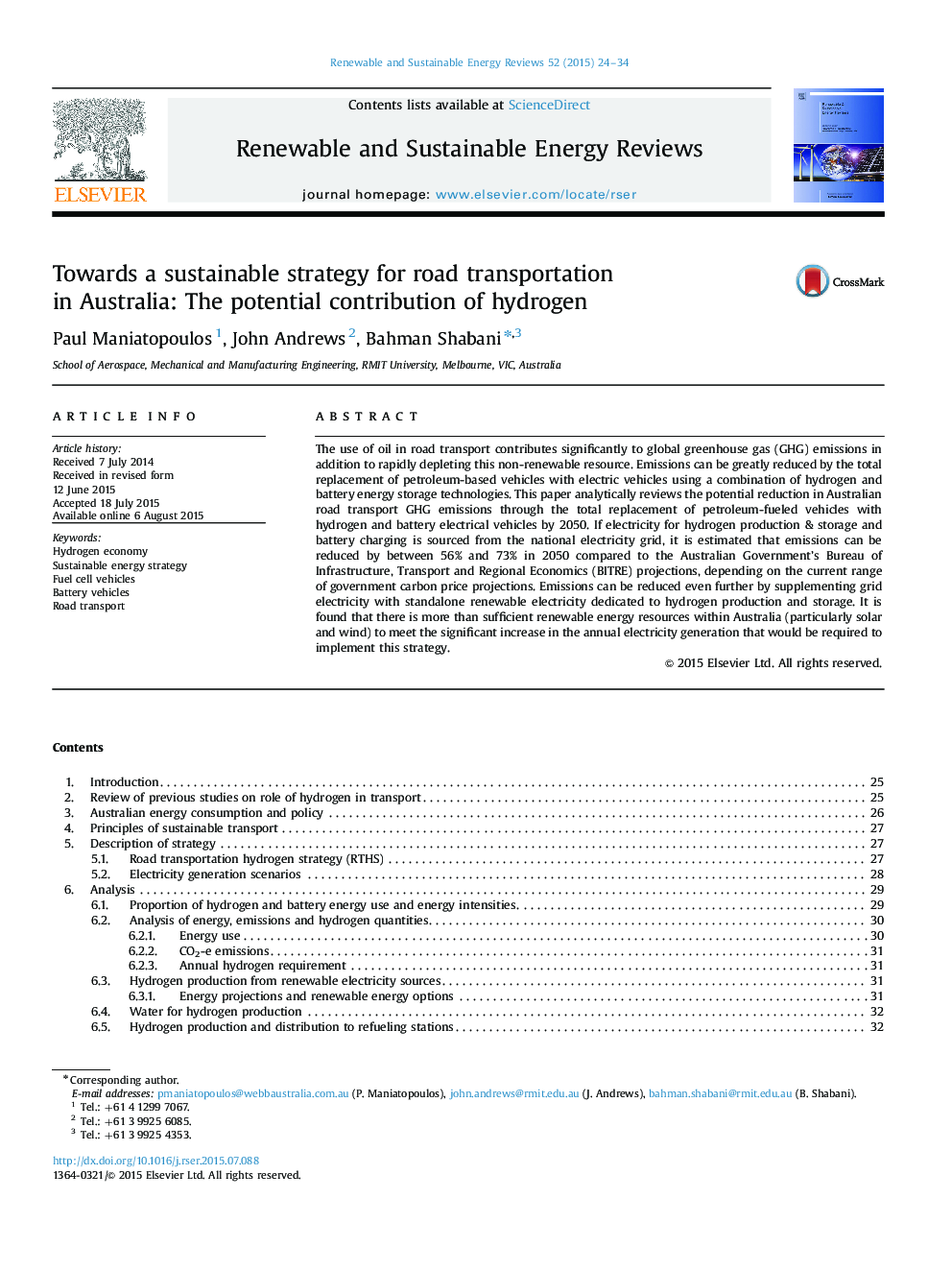| Article ID | Journal | Published Year | Pages | File Type |
|---|---|---|---|---|
| 1749924 | Renewable and Sustainable Energy Reviews | 2015 | 11 Pages |
The use of oil in road transport contributes significantly to global greenhouse gas (GHG) emissions in addition to rapidly depleting this non-renewable resource. Emissions can be greatly reduced by the total replacement of petroleum-based vehicles with electric vehicles using a combination of hydrogen and battery energy storage technologies. This paper analytically reviews the potential reduction in Australian road transport GHG emissions through the total replacement of petroleum-fueled vehicles with hydrogen and battery electrical vehicles by 2050. If electricity for hydrogen production & storage and battery charging is sourced from the national electricity grid, it is estimated that emissions can be reduced by between 56% and 73% in 2050 compared to the Australian Government’s Bureau of Infrastructure, Transport and Regional Economics (BITRE) projections, depending on the current range of government carbon price projections. Emissions can be reduced even further by supplementing grid electricity with standalone renewable electricity dedicated to hydrogen production and storage. It is found that there is more than sufficient renewable energy resources within Australia (particularly solar and wind) to meet the significant increase in the annual electricity generation that would be required to implement this strategy.
